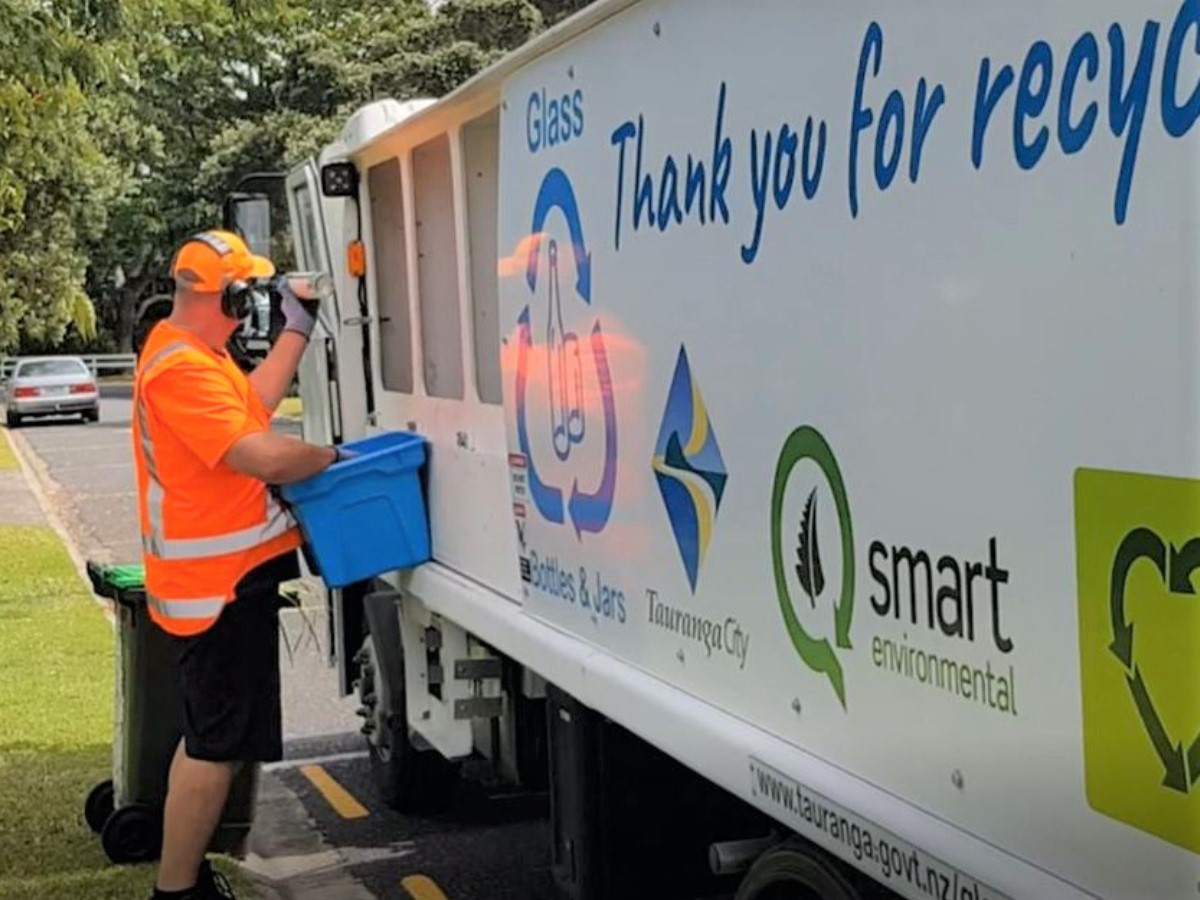The Glass Packaging Forum (GPF) is urging government, local councils, Iwi and waste minimisation groups to support a more ambitious, affordable and effective scheme to enhance recycling across New Zealand.
The GPF, which operates the country’s only voluntary product stewardship scheme for glass bottles and jars, is proposing a transition to a regulated scheme that includes beverage and non-beverage glass containers.

Rob Langford, Chief Executive of the Packaging Forum, which operates the voluntary scheme, says: “This scheme will not only have better environmental outcomes for glass, but will contribute to New Zealand’s ambition to create a zero-waste ‘circular economy’. Our ambition is to divert 100% of container glass from landfill. We’re supportive of Government and the conversations that are happening as a result of the Container Return Scheme (CRS) currently under consideration by Government, but do strongly believe that there is a better alternative for glass.
“We see an opportunity to adopt a co-design process and transition the existing voluntary accredited scheme to a regulated scheme. All container glass will then need to be declared a priority product for both beverage and non-beverage containers, which paves the way for a community, industry and government designed and built scheme.”
Langford believes the scheme will enhance current infrastructure, strengthen market dynamics, and importantly, keep the system as simple as possible for consumers – while still achieving significant gains on what we currently do.
The CRS will aim to increase recycling rates by incentivising New Zealanders to return and recycle their beverage containers at an allocated collection depot.
In a similar scheme in Queensland, the whole cost of the scheme could be up to 21c per container, should the recovery rate be similar to Norway’s at 93%. Consumers pay this up front as part of their beverage purchase, yet receive a refund of just 10 cents for every beverage container returned to a collection depot. Some cost is offset by the scheme’s sale of glass.
The GPF’s proposed scheme is anchored on a highly collaborative model which will involve input from grass root community groups, Iwi, industry and government to create a smarter, long-term solution New Zealanders can be proud of. It will bring all container glass importers, producers and retailers onboard to fund the scheme, significantly enhancing New Zealand’s existing glass recycling infrastructure and collection networks to include all container glass.
“Conversations are already underway between the GPF and Ministry for the Environment about how we can embark on this co-design process to transition the existing scheme. Our request is for government to investigate a regulated scheme for all container glass as an extension to the work underway, before mandating its inclusion in any CRS,” Langford says.
A number of councils and organisations have expressed their support for exploring the GPF’s proposed alternative for a regulated scheme. Their concerns around the proposed CRS revolve around having a clear path to implementation and the possibility of stranded assets through duplication of services.
“In New Zealand, the GPF’s voluntary scheme is generally well supported throughout the supply chain and has so far achieved a national recovery rate of 75% – an enviable recycling statistic for any material in any country. But we can and should be doing better. Any form of regulation comes at a cost and industry is willing to play their part.
“If we look at countries across the world, like Norway for example, they are recovering around 93% of all glass containers. We believe we can match, if not, better the proposed CRS goal of 85%,” says Langford.
The GPF aims to incentivise the best practice collection methods that have been proven to lead to higher recovery rates and better quality (colour sorted) glass, as well as aggregated data collection which can be used to continuously improve the scheme.
The GPF’s scheme would be more effective for stimulating investment, innovation and jobs in waste minimisation, and encourage a sustainable culture of recycling within communities.
“A well-designed scheme would be a win for consumers, the environment, councils, and recycling industries. If we get the right model from the get-go, we are confident New Zealand will end up with a robust and holistic solution in the interests of all New Zealanders.”
For more information about the proposed scheme, visit www.glassforgood.kiwi



